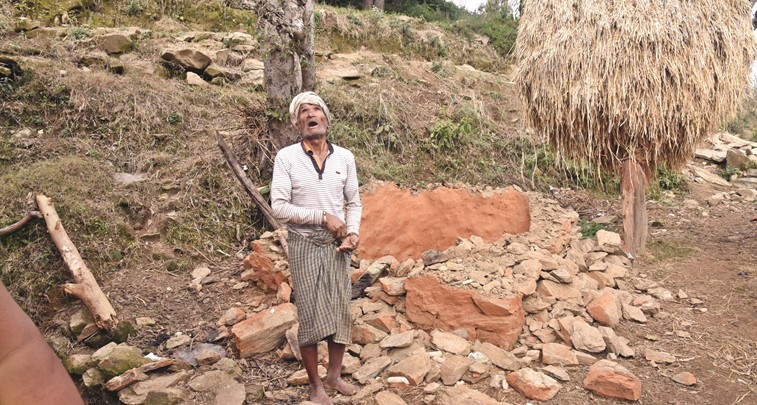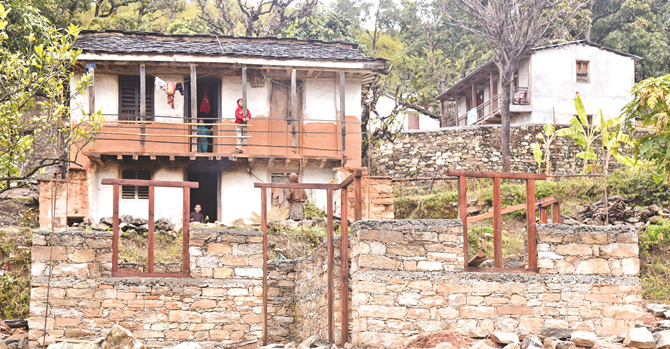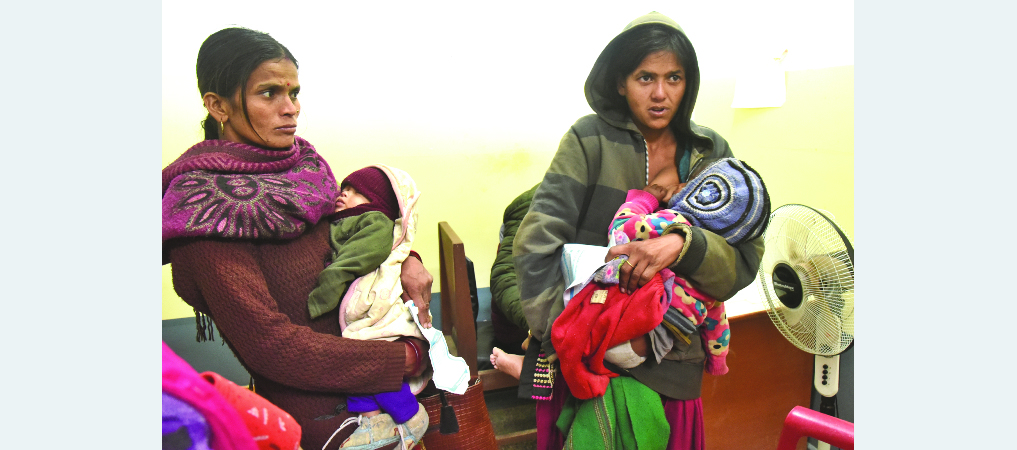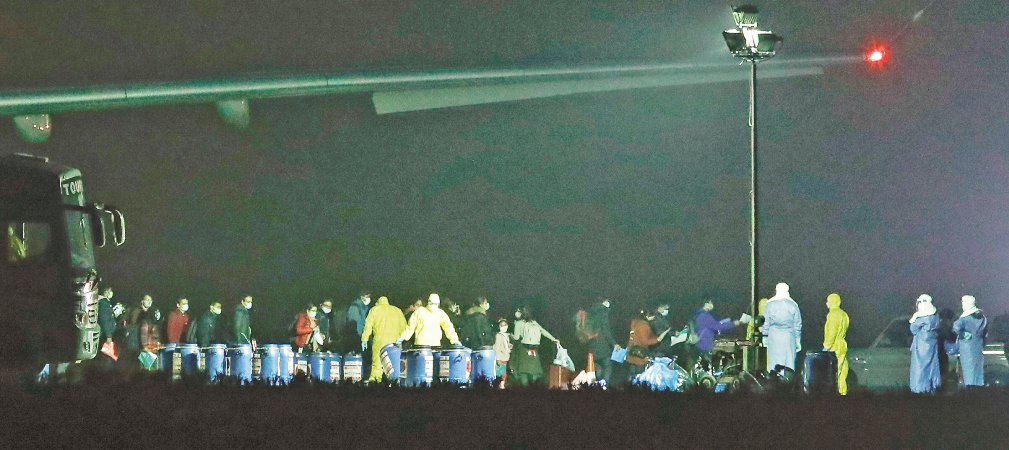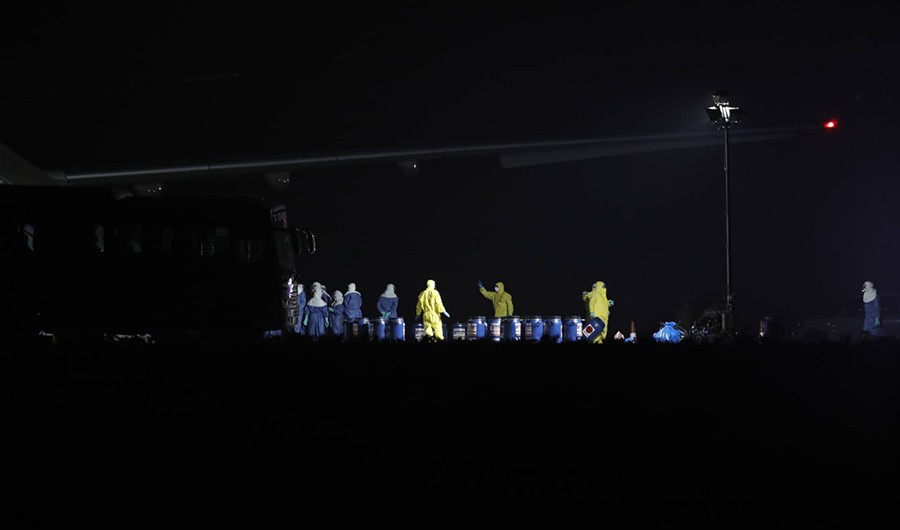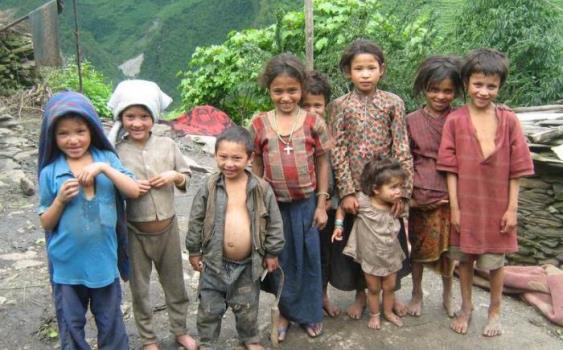Protecting children from virus should be top priority: Experts

By Ajita Rijal
Kathmandu, Apr. 18: As the COVID-19 cases continue to mount, public health experts are voicing serious concerns about the issue. This is because, unlike the first wave, the pandemic has had damaging consequences for children. They are urging everyone to keep children out of high risk of infection.
The Ministry of Health and Population (MoHP) has repeatedly recommended schools to close them in worst-affected districts and not create crowd on their premises.
During the first wave of infection last year, it was largely assumed that children were not highly affected by the virus. However, the new wave of coronavirus has changed the way the virus could affect kids.
According to Dr. Krishna Prasad Poudel, Director at Epidemiology and Disease Control Division (EDCD), more than 10 per cent of children below 18 years of age are infected with the virus on a daily basis as of now. “Among the 940 cases detected on Friday, more than 80 cases involved children below 18 years of age,” said Dr. Poudel.
Dr. Samir Kumar Adhikari, joint spokesperson for MoHP, feared that more school children might have been infected, as identifying infection in children is relatively difficult. “Children might not cooperate at the time of swab collection,” said Dr. Poudel and added that also many parents are found reluctant to test their children’s swab due to fear and anxiety.
According to the EDCD, the UK variant of the coronavirus known as B.1.1.7 might be responsible for over 60 per cent of the new infections in Nepal as of now.
According to scientists, the UK variant is 40 to 70 per cent more transmissible than the one that caused the first wave of coronavirus infection. The virus has changed its nature drastically, said Dr. Rabindra Pandey, a public health expert.
“In most cases, children without any other symptoms of COVID-19 show signs
of pneumonia and are found positive for the virus when tested and as therefore should be observed closely ,” said Dr. Pandey. This is high time to take the situation very seriously and adopt all the measures to keep the minors safe, added Dr. Pandey.
According to Dr. Anup Bastola, Spokesperson for the Sukraraj Tropical and Infectious Disease Hospital, more young people and children are becoming seriously ill and are being admitted to hospitals this time, unlike in the first wave when people above 60 years were at higher risks.
Symptoms and risks
According to doctors, most children are
showing common symptoms like fever, cold, dry cough, loose motion, vomiting, fatigue, loss of appetite. Few may also have breathing difficulties and rashes like any other viral fever.
According to pediatricians, if a child shows symptoms of the coronavirus infection, a Real Time-PCR test should be done immediately.
“Early diagnosis helps in early treatment. In case of an asymptomatic child with both parents COVID-19 positive, there is no need for a test, but if children are exposed to symptomatic patients, they must be tested within five days,” said Dr. Prakash Joshi, a pediatrician.
According to Dr. Joshi, if a child shows fever of 104 Degree Celsius for five consecutive days with diarrhea along with cough, this may be the symptom of COVID-19 among the children. He said early detection of the disease would help in treatment, and helps avoid getting other more critical health issues.
Children may be infected with the virus if their skin turns blue and if they suffer bleeding from nose and mouth. Various studies have shown that the infected children are also at risk of developing Multisystem Inflammatory Syndrome in Children (MIS-C).
MIS-C is a serious condition in which some parts of the body such as the heart, lungs, blood vessels, kidneys, digestive system, brain, skin or eyes may be infected, said Dr. Joshi.
Adopt safety measures
At a time when children do not have access to COVID vaccines, parents must be very cautious to keep them safe from the newer virus strains and the resurgent second wave.
“As the new variants spread more easily, we need to keep doing all the things we’ve been doing since the outbreak of the pandemic, including social-distancing, wearing mask, washing hands, quarantine if exposed and to get tested immediately,” said Dr. Poudel.
The best way to keep children safe is to restrict their movement. “Every parent should be concerned about the safety of their children above everything else, now the most important thing we all need to do is to keep children safe and healthy,” said Dr. Adhikari.
Though various studies are showing promising results, it will take a while for vaccines to be widely available for children. Therefore, until then we urge parents to keep their kids safe, practice precautions, basic hygiene measures, as well as strictly follow all public health safety protocols against COVID-19, reiterated Dr. Joshi.
Recent News

Do not make expressions casting dout on election: EC
14 Apr, 2022
CM Bhatta says may New Year 2079 BS inspire positive thinking
14 Apr, 2022
Three new cases, 44 recoveries in 24 hours
14 Apr, 2022
689 climbers of 84 teams so far acquire permits for climbing various peaks this spring season
14 Apr, 2022
How the rising cost of living crisis is impacting Nepal
14 Apr, 2022
US military confirms an interstellar meteor collided with Earth
14 Apr, 2022
Valneva Covid vaccine approved for use in UK
14 Apr, 2022
Chair Prachanda highlights need of unity among Maoist, Communist forces
14 Apr, 2022
Ranbir Kapoor and Alia Bhatt: Bollywood toasts star couple on wedding
14 Apr, 2022
President Bhandari confers decorations (Photo Feature)
14 Apr, 2022



